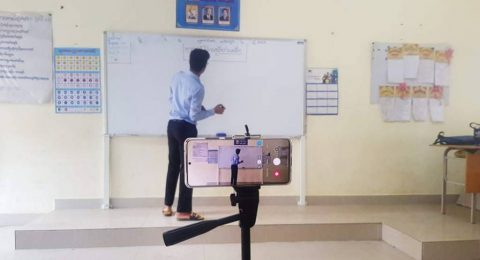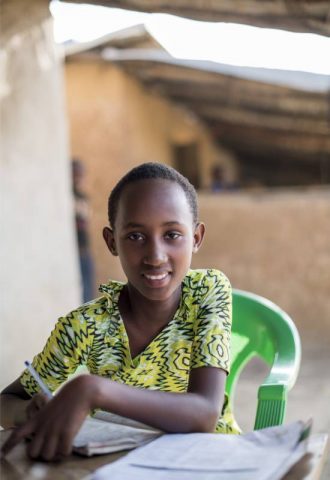Covid-19 increases poverty and aggravates the education crisis in developing countries, but solutions exist
For more than a year, Covid-19 has dominated the news globally. In March 2020, when the first restrictions were imposed, nobody could have imagined that we would still be combating a crisis a year later. The global impact of this pandemic has been and will continue to be enormous.
The coronavirus pandemic has increased global poverty for the first time in twenty years. The World Bank estimates that up to 93 million people were plunged into extreme poverty in 2020.
“For poor countries, the outlook is grim,” says Saara Lehmuskoski, a Senior Adviser at Finn Church Aid (FCA). When the pandemic hit, she was working as FCA’s country director in Cambodia.
“Many are reaching a level where just getting food on the table is difficult. For them, moving out of poverty will take a long time. In recent years, we have heard positive news about how people are being lifted out of poverty. Sadly, we’re now taking a big step backwards.”
With less economic activity, tax revenue will fall, which then leads to cutbacks. The World Bank estimates that two out of three developing countries have cut their education spending due to Covid-19. Combined with a rise in poverty, families and children who are already poor will be the ones most severely affected.
“In Cambodia, distance learning is only available for the richest children. The poorest rural students, who have limited access to education anyway, don’t own a television or a smartphone,” says Lehmuskoski.

Children no longer have access to education because schools are closed. And due to rising poverty, some families need children to work to make sure that everybody gets fed.
“In the long term, this is a terrible risk for the children who are now at school age. We will be dealing with the aftermath of this pandemic for another 10 to 15 years. Right now, we need to make sure that children stay at school and continue their learning so that, once the pandemic is over, young people completing their studies will be equipped to earn a living and engage actively with their communities,” says Lehmuskoski.
Digital learning provides access to education
In poorer countries, the education budget is often small in comparison to other expenditure. When a crisis such as Covid-19 strikes, funds are needed for healthcare and other similar items. Deputy executive director Tomi Järvinen at Finn Church Aid points out that decisions about short-term savings should not be taken at the expense of education.
“Research findings show that education is a key to higher gross domestic product and, of course, improved levels of personal income. Each year at school will boost the student’s future earnings. For girls, this rise is even more marked.”
School closures in response to the pandemic raised concerns about whether children, especially girls, would return to school in the poorest countries.
“What we hear from the field is that the scenarios presented at the beginning of the pandemic have, at least in part, materialised. We have seen more teenage pregnancies and child marriages, and the concerns about young people not returning to school are real,” says Järvinen.

To prevent children from dropping out of school, it is important to develop ways of communicating with learners and preparing them for the eventual return to school. In Kenya, FCA has supported efforts to ensure that schools maintain contact with students and young people return to school as soon as possible.
Digital learning is part of the solution for developing countries. It contributes to enabling access to education and to providing high-quality education for all. Going forward, digital solutions will continue to make remote education possible, for example when children are ill or unable to attend contact teaching for some other reason.
“We shouldn’t think that developing countries will take up digital learning at some later date. They have already gone digital in fields such as communication and commerce, and now we need to extend these solutions to education,” says Tomi Järvinen.
In fragile countries where FCA operates, the first stage of digitalisation means low-tech solutions, such as radio lessons and WhatsApp messaging. For example, radio receivers have been distributed and radio lessons broadcast to families in refugee camps and rural areas in Kenya.
“The situation is never hopeless; there’s always something we can do. Now we need to invest in digital learning and its development, and analyse the lessons learned from the Covid-19 crisis.”
Text: Noora Pohjanheimo